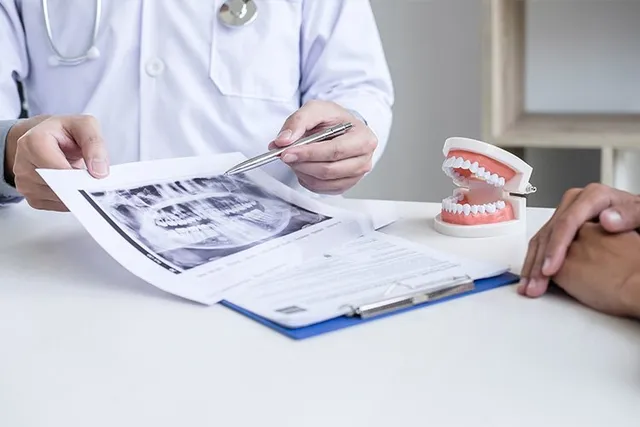At Riverwoods Oral & Maxillofacial Surgery, we understand how life-changing corrective jaw surgery can be. Corrective jaw surgery, also known as orthognathic surgery, is a transformative procedure that improves jaw alignment, restores functionality, and enhances facial aesthetics. While this surgical solution is beneficial for many, determining whether you need it depends on various functional, aesthetic, and medical factors.
Understanding Corrective Jaw Surgery
Corrective jaw surgery addresses a variety of issues related to misaligned jaws, including difficulty chewing, speaking, and breathing. It involves collaboration between an oral and maxillofacial surgeon and an orthodontist to create a balanced and harmonious jaw alignment.
Key Signs You May Need Corrective Jaw Surgery
Chronic Jaw Pain or Discomfort
Persistent pain in your jaw joints or muscles could indicate misalignment. This discomfort often manifests as temporomandibular joint disorder (TMJ), leading to headaches, earaches, and difficulty moving your jaw.
Difficulty Chewing or Biting
If your teeth do not meet properly when your mouth closes, it can make eating challenging. A misaligned jaw can lead to uneven pressure on certain teeth, increasing wear and tear.
Speech Difficulties
Jaw misalignment can cause speech issues, such as slurring or difficulty pronouncing certain words. Corrective jaw surgery can realign your jaw, improving your ability to speak clearly.
Breathing Problems or Sleep Apnea
Individuals with obstructive sleep apnea or chronic breathing difficulties often benefit from corrective jaw surgery. By repositioning the jaw, the procedure can open up the airway, alleviating these conditions.
Facial Imbalance or Asymmetry
Aesthetic concerns, such as an overly prominent chin, a receding jawline, or noticeable facial asymmetry, can indicate the need for jaw surgery. These issues are not just cosmetic; they often signify underlying functional problems.
Difficulty Closing Lips Naturally
If you struggle to close your lips without strain or effort, it could be due to jaw misalignment. This symptom is a strong indicator that corrective jaw surgery may be necessary.
Open Bite or Crossbite
Dental misalignments such as an open bite (where the upper and lower teeth do not touch when the mouth is closed) or a crossbite (where some upper teeth sit inside the lower teeth) often require surgical intervention.
Chronic Teeth Grinding (Bruxism)
Jaw misalignment frequently leads to bruxism, or teeth grinding, which can damage teeth and exacerbate jaw pain. Corrective surgery addresses the root cause of the misalignment, alleviating grinding.
The Evaluation Process
Initial Consultation
Your journey begins with a consultation with our experienced team at Riverwoods Oral & Maxillofacial Surgery. We will evaluate your medical history, conduct a physical examination, and assess your jaw’s alignment and functionality.
Diagnostic Imaging
Advanced imaging techniques, such as X-rays, 3D scans, and cephalometric analysis, help identify the extent of misalignment and guide the treatment plan.
Collaborative Planning
A team of specialists, including orthodontists and surgeons, will collaborate to design a personalized treatment plan. This plan often includes pre-surgical orthodontic treatment to align the teeth properly.
Benefits of Corrective Jaw Surgery
- Improved Functionality: Enhances chewing, speaking, and breathing.
- Pain Relief: Alleviates chronic jaw pain and associated symptoms.
- Enhanced Aesthetics: Creates a balanced and symmetrical facial appearance.
- Boosted Confidence: Restores self-esteem and quality of life.
When to Consult a Specialist
If you’re experiencing any of the signs listed above, schedule a consultation with Riverwoods Oral & Maxillofacial Surgery. Early diagnosis and treatment can prevent further complications and improve your overall quality of life.
Corrective jaw surgery is a significant decision, but for many, it is life-changing. By addressing both functional and aesthetic concerns, this procedure helps you achieve optimal oral health and renewed confidence.



Comments are closed.